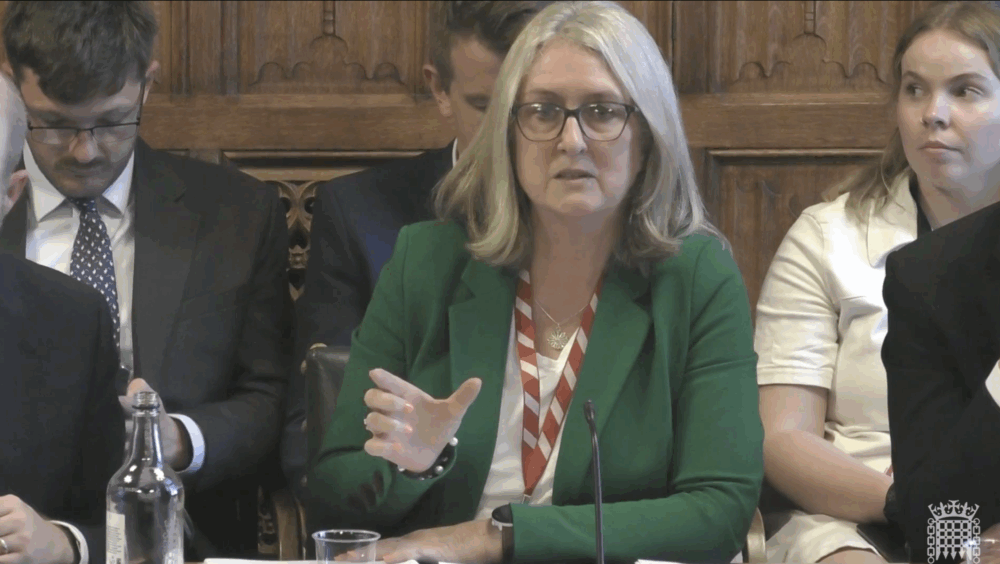The skills minister has said there is “potential for further devolution” as she admitted to “tensions” with mayors over skills funding powers.
Jacqui Smith highlighted 16 to 19 funding as a potential area where the Department for Education could release some control to local areas during a business and trade committee hearing on the industrial strategy in parliament today.
Around 60 per cent of the government’s adult education budget has been devolved to mayoral combined authorities since 2019. Mayors have repeatedly called for control of more skills pots, including apprenticeships and 16 to 19 funding.
Quizzed by business and trade committee chair Liam Byrne on whether mayors are still asking for the DfE to go further with skills devolution, Smith said: “Yes, they are.
“Let me be completely clear. There is tension over the funding for 16 to 19. We have a compulsory education system between 16 and 19, that is a national system, and I think there is a limit. I could not envisage that we would devolve all of that 16 to 19 funding to mayors.
“I meet frequently with the mayors on this. We’re currently doing quite specific work with Greater Manchester about how we could go further on devolution. And I think there might be some elements of that that we could look to devolve.”
Pressed again by Byrne on whether the DfE currently has the right “balance” with skills devolution, Smith said: “I think there’s potential for further devolution.”
DfE ‘biggest frustration’ for mayors
Her comments come two weeks after several MCAs gave evidence to the business and trade committee and spoke up about their desire to control more skills funding, including Greater Manchester’s Andy Burnham who described the DfE has his “biggest frustration” during his tenure.
Howard Dawber, the Greater London Authority’s deputy mayor for business and growth, told the committee: “The 19-plus bit is delegated to us. The adult skills bit is delegated to us. The 16-to-19 bit is not. We have very little say over that. We have colleges with which we work where we represent a part of their income but not all of it. We also do not have responsibility over apprenticeships or higher education.”
He added that the GLA would “ideally” have more skills funding devolved.
North East mayor Kim McGuinness agreed with Dawber. “I do not know why we do not do that,” she said.
“Businesses will say to us, ‘We have skills shortages in these places’. You cannot drive that from Westminster. You need to be able to drive it locally. You need a system that is properly joined up. At the moment, as we know, there are too many people who are not in work or education in that 16-to-19 bracket.
“Economic inactivity in young people is not at a sustainable level. That will absolutely affect our ability to grow as a country. We have an education system that separates post-19 and 16-to-19. People are falling through the gaps.”
Burnham later said: “The biggest frustration is the Department for Education, without a shadow of a doubt. I am not just speaking alone here with a pet grievance of my own. All the mayors feel this.
“Why are we remaking the case for devolution to this department now? I have been doing it for eight years. It stands to reason, chair, that you can create stronger technical education pathways when you can work with the actual employers in your city region who will be employing the young people or older workers who will come through. We are the only ones who can create those meaningful pathways and who can commission colleges according to the actual sectoral strengths of our economy, yet that is still being resisted.”
Burnham added that the “position” of the Department for Education on this issue “risks becoming an anti-growth policy”.
















Your thoughts